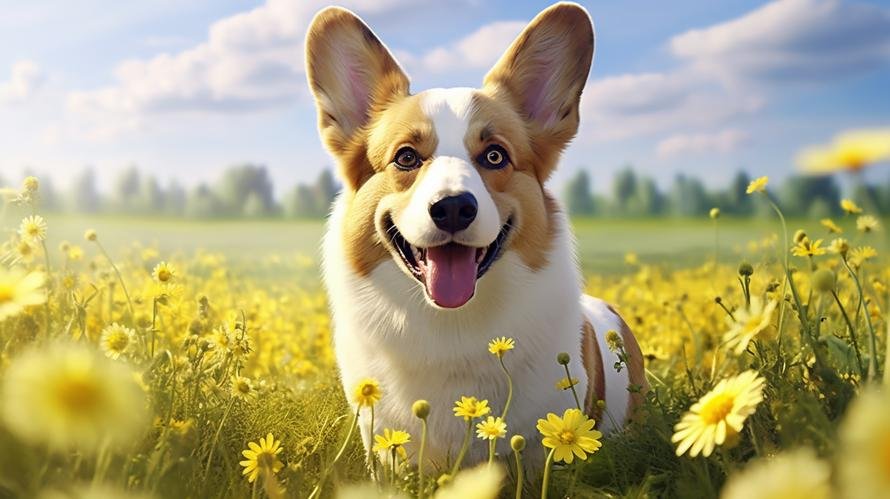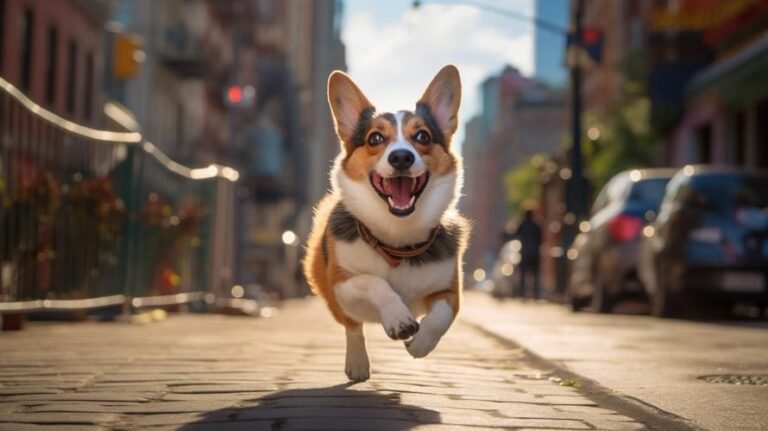Corgis… If you’re a fan of Queen Elizabeth or just dog memes on the internet, you’ve probably seen these little four-legged bundles of fluffy joy. But wait: did you know these adorable dogs have a long and fascinating history? That’s right! For starters, the name “Corgi” actually comes from the Welsh for “dwarf dog.” They were originally used as herding dogs and have some interesting folk tales attached to them. But pause right there. Before you rush off to get a Cardigan Welsh Corgi for yourself, it’s important to dig a little deeper into their behavior. You might be wondering, do these little pocket rockets have an aggressive streak?
Let’s start by debunking a myth: No breed of dog is entirely aggressive or entirely docile. While genetics does play a significant role, the environment a dog is raised in significantly influences their behavior too. When it comes to Cardigan Welsh Corgis, they’re typically known for their friendly, loving, playful, and intelligent nature. Yes, those little legs carry a brain sharp as a whip!
However, every coin has two sides, and Corgis do have a few traits that, if not channelled correctly, could be considered by some as “aggressive.” Their herding instincts, for example, could cause them to be a bit nippy, especially around young children. That said, this is far from the aggression that one often associates with behaviors like growling, baring teeth, or worse. So how do we handle these behaviors and ensure our Cardigan Welsh Corgi is more cuddle-bear than chaos-causer? That’s what we’re here to explore.
Firstly, it’s essential to socialize your Cardigan Welsh Corgi as early as possible. Introduce them to a variety of people, places, and environments to lessen the chances of them becoming anxious or fearful, which in turn could lead to aggressive behaviors. The more they’re exposed at an early age, the more well-adjusted they’ll likely be as adults.
Training is your next best friend. Corgis are intelligent, meaning yes, they can learn tricks pretty quickly, but also that they can get bored easily too. Channel their intelligence and energy into positive outlets like obedience and agility training. A Corgi with a job is a happy Corgi! This also keeps their minds sharp and stops them from getting into trouble through boredom.
What’s more, ensure your furry friend gets enough exercise. A tired dog is a good dog, they say, and it holds especially true for Cardigans. Regular exercise keeps them healthy, mentally stimulated, and less prone to bad behavior. Besides, Corgis can be prone to obesity if their diets aren’t properly managed, so regular exercise is a must!
Once you’ve ensured these basics are in place and a part of your Corgi’s routine, you might want to tune into their more specific needs. For example, due to their herding instinct, Corgis can be a bit protective of their people and territory. If you notice your Corgi displaying signs of excessive protectiveness, it might be time to step up and show them that you’re the one in charge. Remember, leadership is crucial with intelligent breeds like the Corgi.
On a final note, it’s crucial to remember that aggressive behavior is almost always a result of some issue the dog is dealing with. Aggression can be their way of saying, “I’m not comfortable with this,” “I’m afraid,” or even, “I’m in pain”. Address these root causes effectively under the guidance of a professional, and you’re on your way to living the good life with your Corgi companion!
So, coming back to our original question: Is the Cardigan Welsh Corgi aggressive? The answer is a collective ‘NO’. All they need is a bit of socializing, a few lessons in obedience, a healthy side of exercise, and a hearty helping of understanding. With these, you’ve got a friend who’s as sweet as honey and twice as golden. Adopt one today, and you’ll see for yourself!
Remember, a well-trained Cardigan is not only a reflection of them but also of you. So put in the time and energy, and you and your Corgi will build an unbreakable bond of love, trust, and companionship. After all, as Roger Caras once said, “Dogs are not our whole life, but they make our lives whole”.



